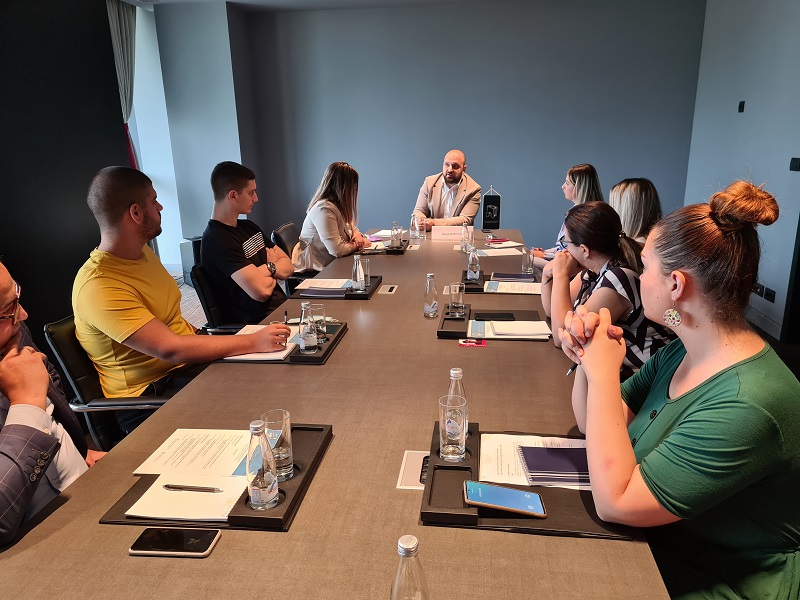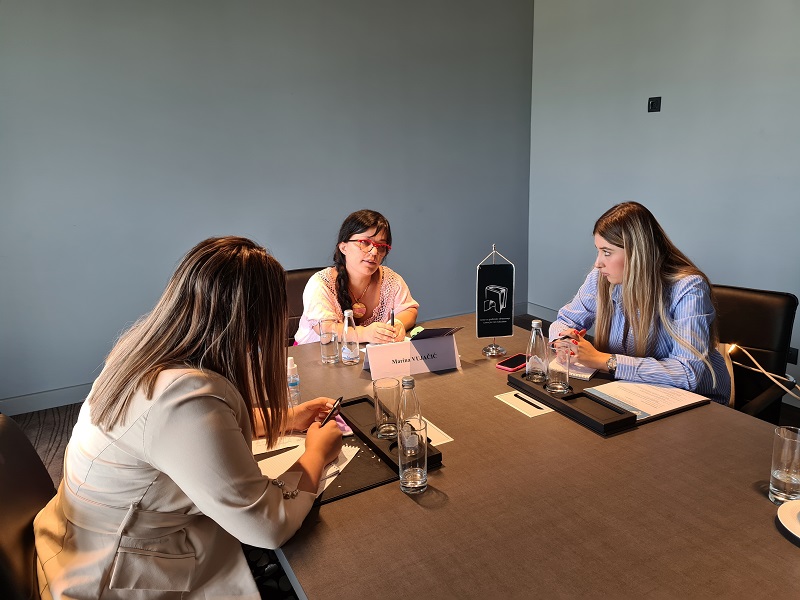Political parties have the key role in decision-making processes in the public interest, and consequently improvement of the position of persons with disabilities, and that must be a mutual venture of all political actors, no matter to the ideological profiles and political history of relations among political subjects, as concluded at the training „Promotion of inclusion and prevention of discrimination toward persons with disabilities“, organised by the Centre for Civic Education (CCE) from 26to 28 of July within the project „Equality for all – discrimination NO!“, with the support of the Ministry of Justice, Human and Minority Rights.
The objective of the training was to strengthen the awareness of representatives of political parties about the damage of prejudices, stereotypes, discrimination and exclusion of persons with disabilities, having in mind that party politics can significantly influence adequate shaping of public attitudes. Within the nine sessions, representatives of political parties with prominent trainers, lecturers and workshop facilitators were addressing the topics of human and minority rights and protective mechanisms, the concept of disability, the importance of social inclusion of the persons with disabilities and inclusive education, and all followed with examples of good practice of fights and fighters for rights of persons with disabilities. Elements of discrimination and prevention of discrimination towards persons with disabilities were especially assessed, with identification and deconstruction of prejudice and stereotypes towards persons with disabilities.
Finally, representatives of political parties were presented with findings of research about the representation of issues of persons with disabilities in the programmes of political actors of 2020 Parliamentary elections, and in the end, participants were considering specific models of civic and political participation of persons with disabilities.
The training was opened by the State Secretary of the Ministry of Justice, Human and Minority Rights of Montenegro and Head of the WG for Chapter 23, Bojan Božović. „Human rights are more or less numerous and by its content very complex and there are as many as are gained by political fight, or as many as are turned into the positive right from politically-ethical reasons, “ he noted on that occasion. Bozovic assessed human rights as anthropocentric. „Carriers of these very special subjective rights can be only people, and at the beginning only individually and nowadays more and more collectively as groups. That is the reason why all of us have the right on them, without a difference, without discrimination“, he explained.
Executive director of the Association of Youth with Disabilities of Montenegro, Marina Vujačić, during the session that she led, assessed that „Participation of persons with disabilities in most of the public spheres is still displayed as the humanity of society, not as the most natural thing and realistic need from which the whole society could make progress.“ Vujačić sees as crucially important the role of political parties in the comprehensive inclusion of persons with disabilities. „Political parties are often, as constituents of authority and policy shapers, those who create public opinion, and hence responsible for the relation of the society towards persons with disabilities. That is why messages, but also deeds, of political parties, must imply acceptance of persons with disabilities as equally worthy of rights, equality and participation in society and decision-making processes,“ she emphasized.
Participants of the training were representatives of 11 political parties – Democratic Party of Socialists (DPS), United Reform Action (URA), Democratic Montenegro (Democrats), Social Democratic Party of Montenegro (SDP), Social Democrats of Montenegro (SD), New Democratic Force FORCA (FORCA E RE DEMOKRATIKE), Labour Party, Socialist People`s Party (SNP), DEMOS, Right Montenegro and Democratic People`s Party (DNP).
Željka Ćetković, Active Citizenship Programme Coordinator


